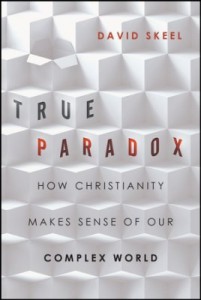In this essay, “Integrating Faith and Learning with the Trinity,” Mary Korte argues for a robust application of theology to the curriculum and presents a thorough discussion of such an application to the environmental sciences: “The goal at a Lutheran university should not be to integrate a generic spirituality, an inoffensive but vapid Christianity, or a […]
Items included on this page come from a variety of sources. The perspectives conveyed may or may not express a Lutheran ethos. They can serve our instruction as discussion-starters, examples (positive and negative), and illustrations of intersections between God’s two kingdoms, intersections sometimes characterized by tension, sometimes by congruence. Inclusion does not imply endorsement.

Most and Least Religious on Science
According to the new Pew Research Center report, the share of the public saying science and religion are often in conflict is up modestly from 55% in 2009, but the parsed results are mixed. People’s sense of conflict between religion and science has less to do with their own religious beliefs than it does with […]
Neuroscience, Transhumanism, and Human Nature
Says William Carroll in “Mind the Gap”: Before we rush to embrace transhumanism, it is crucial to ask what it means to be human. Can a mechanistic understanding of mental function sufficiently apprehend what it is to be human? Or does the mind (and, more generally, the soul) remain radically other than, and not reducible to, physical […]
The Exodus as an Example of the Academic Culture Wars
“Was There an Exodus?” is a very readable essay series in Mosaic that examines the long-standing debate about whether the Exodus actually occurred. Not just for Biblical studies, the themes can apply to the social sciences, history, the sciences, and any class that accesses the past to understand the present. This exchange can help students […]
Useful and Useless Science: Who Runs Research and Why?
“The New Scientist: Jack of All Trades,” raises the issue of how and why resources are allocated for and in the sciences. “The claim that science needs to focus more on societal needs originates from politicians and is disseminated by intermediate bodies between politicians and scientific institutions such as national or regional funding agencies. Such […]
The Origins of Religion: How Supernatural Beliefs Evolved
From LiveScience, this brief article about evolutionary psychology and religion serves as a convenient inventory of the usual and now popularized claims about the human origins of religion. Links to sources are also included. The brief article can be used to introduce students to these ideas often cited in the popular press, then follow that […]
Are We Ex-Apes?
This review of Tales of the Ex-Apes: How We Think About Human Evolution by biological anthropologist Jonathan Marks (Univ. of Calif. Press, 2015), can assist students with the discussions about human nature in the current terms of biological anthropology, human exceptionalism, and the cultural determinism of scientific terms and ideas. Says Marks: “My point is precisely that nobody can […]
All Scientists Should Be Militant Atheists
This NYT op/ed piece from physicist Laurence Krauss offers a study piece for apologetics. Students can consider his premises and logic, his style of presentation and degree of connection with readers, and the extent to which his examples and reasoning convey a comprehensive grasp of the world as we experience it in the lab, the […]
A Paradigm for Relativity and Quantum Physics?
“Quantum Physics and the Need for a New Paradigm” will provoke advocates of philosophical naturalism, intelligent design, science-of-the-gaps critics, and other participants in the disputes about origins and explanations of reality. The author, physicist Ruth Kastner, is talking her book (Understanding Our Unseen Reality: Solving Quantum Riddles) here but does a fair and concise job of […]
Hinxton Group Anticipates Genome-Edited Human Reproduction
The Hinxton Group, an international consortium on stem cells, ethics, and law, has published their Statement on Genome Editing Technologies and Human Germline Genetic Modification: “We acknowledge that when all safety, efficacy and governance needs are met, there may be morally acceptable uses of this technology in human reproduction, though further substantial discussion and debate […]


 True Paradox: How Christianity Make Sense of Our Complex World
True Paradox: How Christianity Make Sense of Our Complex World